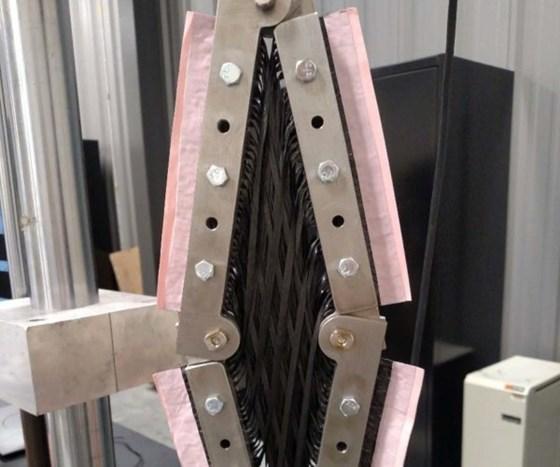New carbon fiber composite manufacturing process exhibits improved fabric formability characteristics compared to traditional woven materials.
The Institute for Advanced Composites Manufacturing Innovation (IACMI, Knoxville, TN, US), a public/private consortium designed to accelerate composite materials and process development in the US, announced May 15 the Phase I completion of a project led by DuPont (Wilmington, DE, US), with project partnership from Fibrtec (Atlanta, TX, US) and Purdue University. The conclusion of Phase I validates the creation of a new carbon fiber composite manufacturing process that exhibits improved fabric formability characteristics compared to traditional woven materials. The implications of the Phase I results are driving Phase II of the project, and can lead to a decrease in cost for carbon fiber composite structures, making them more amenable for adoption in the automotive and other high volume industries.
The new material created through this IACMI project combines Fibrtec’s flexible coated tow, Fibrflex, with DuPont’s Rapid Fabric Formation (RFF) technology, and a proprietary DuPont polyamide resin, all supported by Purdue University’s modeling and characterization capabilities. The coated tow material is a partially impregnated carbon fiber/polyamide composite tow where the carbon fiber is not fully wetted with the polyamide, yielding a more flexible tow material than one that is fully impregnated. The RFF process is a way of manufacturing fabrics with tows in varying orientations without the need to lift the tow during processing. Experiments, modeling and simulations, have reportedly shown that this process/materials combination is a potential method for producing lower cost continuous fiber reinforced polymer (CFRP) thermoplastic materials that conform well during molding.
